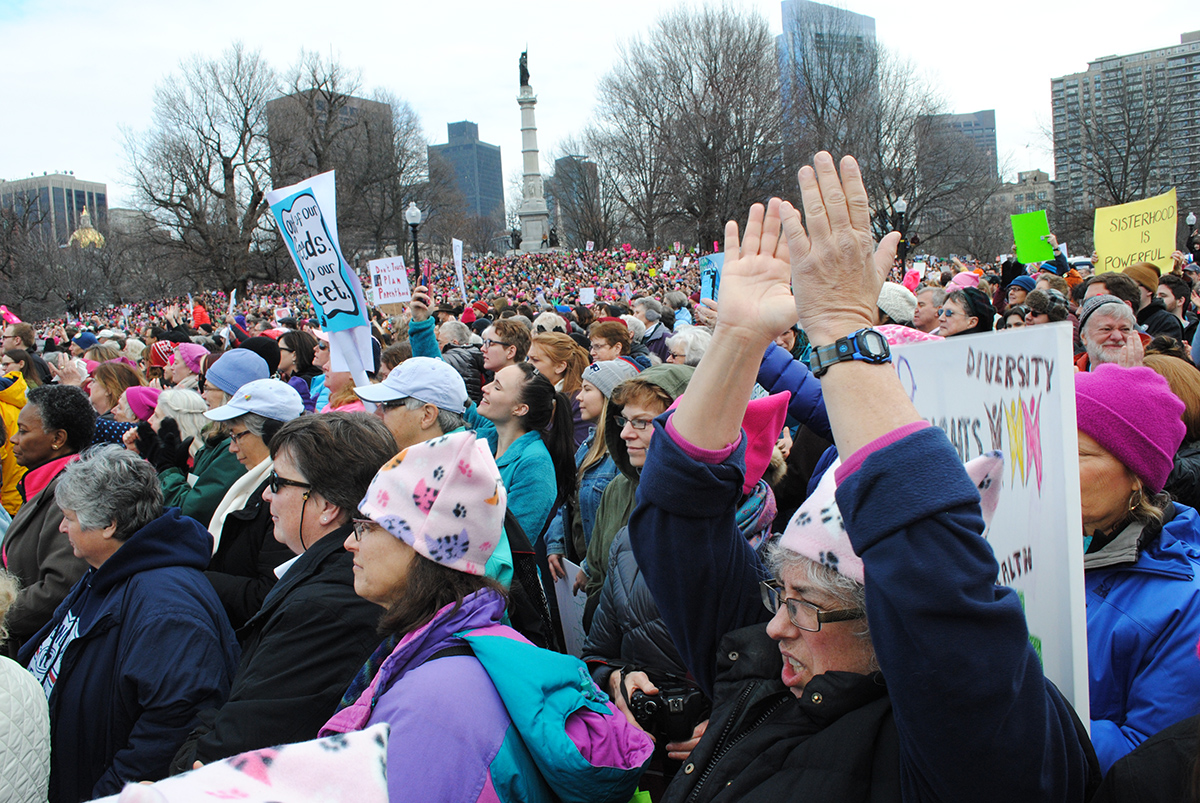Boston’s March for Science Is Happening on Earth Day, April 22

Photo by Madeline Bilis
Mark your calendars. A date has been set for Boston’s March for Science: Earth Day, April 22.
Organizers of a pro-facts march in Washington, D.C. made the decision on Wednesday. Sister marches around the country, including in Boston, which starting taking shape immediately after the inauguration, are following their lead.
The rallies’ leaders also have a new mission statement, which highlights their goal of making the protests non-partisan:
The March for Science champions publicly-funded and publicly-communicated science as a pillar of human freedom and prosperity. We unite as a diverse, non-partisan group to call for science that upholds the common good, and for political leaders and policy makers to enact evidence-based policies in the public interest. This group is inclusive of all individuals and types of science!
Bucking party affiliation may be a heavy lift considering the demonstrations are effort to counter the message from the White House, whose new occupant has made no secret of his hostility to science, scientists, and expertise generally. And a researcher made the case recently in a New York Times column that holding the rallies runs the risk of politicizing science, and that pissing off the hotheaded new president might not be the best strategy.
But one local organizer, Boston College’s Kimberly Hokanson, says the effort not to make this about politics is sincere. For one, she says, rally attendees should expect to hear fewer speeches from politicians, and more from scientists and “regular folks.”
“We’re not protesting anyone. We’re speaking up for science and science education and science funding,” says Hokanson, who runs the Facebook page for the event and is one of a handful of leaders putting it together. “I think we’re doing the best we can so far—in our eight days of work—keeping on message as much as we can. That’s definitely a focus for us.”
Another focus, she says, is diversity, particularly for the event’s main stage. “Diversity in field, age, racial and ethnic background, LGBTQ—as diverse a group of people as we can find, on the stage,” she said, adding, “I don’t think many politicians at all.”
There was some criticism of the Women’s March for some regrettable missteps early on, and a hard-to-ignore whiteness.
In the meantime, Hokanson says, organizers have started talks with city officials about planning the event, but have not picked a venue yet. She says there has been discussion about organizing something that is not a march, per se, but that will have more of a “festival feel.” A team of designers is also putting together a website.
Meanwhile, elsewhere in Boston, a new era of protesting continues taking shape. Others are planning a march in Boston to urge Trump to release his taxes, on Tax Day.

